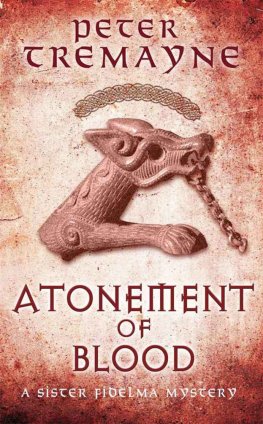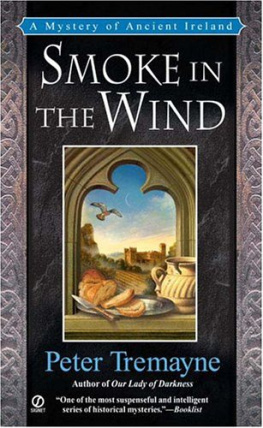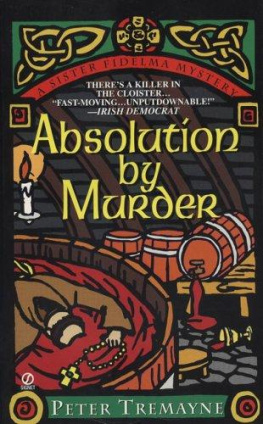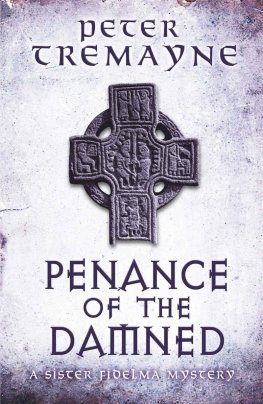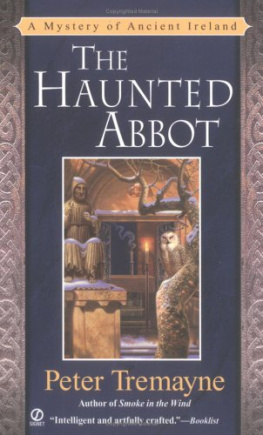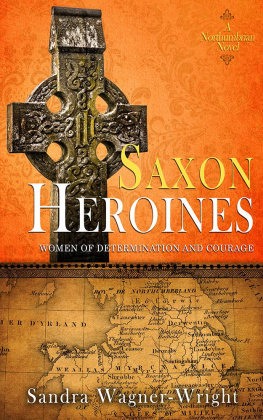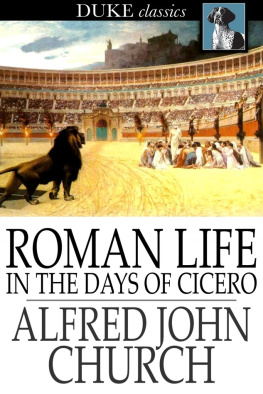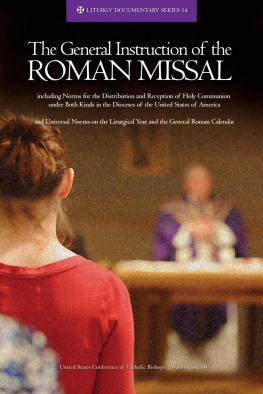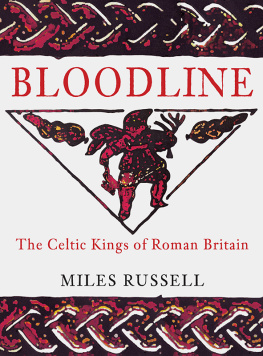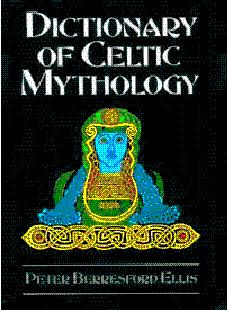
To Dorothea
Chapter One
The man had not been dead long. The blood and spittle around his twisted lips had not even dried. The body swung to and fro in the faint breeze, suspended at the end of a stout hemp rope from the branch of a squat oak tree. The head was twisted at an awkward angle where the neck had been broken. The clothes were torn and if the man had worn sandals then they had since been taken by scavengers for there was no sign of any footwear. The contorted hands, still sticky with blood, showed that the man had not died without a struggle.
It was not the fact that a man had been hanged on a crossroad tree that caused the small party of travellers to halt. The travellers had become used to witnessing ritual executions and punishments since they had crossed from the land of Rheged into the kingdom of Northumbria. The Angles and Saxons who dwelt there seemed to live by a harsh code of penalties for those who transgressed their laws, from an assortment of mutilations of the body to execution by the most painful means devised, the most common and humane being by hanging. The sight of one more unfortunate suspended on a tree no longer troubled them. What had caused the party to draw rein on their mounts, an assortment of horses and mules, was something else.
The party of travellers consisted of four men and two women. Each was clad in the undyed wool tunica of the religious, and the hair of the men was shaven at the front, their tonsure marking them as brothers of the church of Columba from the Holy Island of Iona. Almost as one they had halted to sit staring up at the body of the man hanging in gruesome wide-eyed death, the tongue blackened and stretched between the lips in what must have been one last frantic gasp for air. The face of everyone in the party was grim with apprehension as it examined the body.
The reason was not hard to discern. The head of the body was also shaven with the tonsure of Columba. What remained of his clothing proclaimed it to have once consisted of the habit of a religieux, though there was no sign of the crucifix, leather belt and satchel that a peregrinus pro Christo would have carried.
The leading traveller had drawn near on his mule and gazed up with a terrified expression on his white features.
Another of the party, one of the two women, urged her mount nearer and gazed up at the corpse with a steady eye. She rode a horse, a fact that signified that she was no ordinary religieuse but a woman of rank. There was no fear on her pale features, just a slight expression of repulsion and curiosity. She was a young woman, tall but well proportioned, a fact scarcely concealed by her sombre dress. Rebellious strands of red hair streaked from beneath her headdress. Her pale-skinned features were attractive and her eyes were bright and it was difficult to discern whether they were blue or green, so changeable with emotion were they.
Come away, Sister Fidelma, muttered her male companion in agitation. This is not a sight for your eyes.
The woman addressed as Sister Fidelma grimaced in vexation at his anxious tone.
Whose eyes is it a sight for, Brother Taran? she responded. Then, edging her horse even closer to the corpse, she observed, Our brother is not long dead. Who can have done this terrible deed? Robbers?
Brother Taran shook his head.
This is a strange country, sister. This is only my second mission to it. Thirty years have passed since we first began to bring the word of Christ to this Godforsaken land. There still be many pagans about with scant respect for our cloth. Let us move on quickly. Whoever did this deed may have remained in the vicinity. The abbey of Streoneshalh cannot be too far distant and we want to reach it before the sun drops below those hills.
He shivered slightly.
The young woman continued to frown, displaying her irritation.
You would continue on and leave one of our brethren in this manner? Unblessed and unburied?
Her voice was sharp and angry.
Brother Taran shrugged, his obvious fear making him a sorry spectacle. She turned to her companions.
I have need of a knife to cut our brother down, she explained. We must pray for his soul and accord him a Christian burial.
The others cast uneasy glances at each other.
Perhaps Brother Taran is right, replied her female companion, apologetically. She was a large-boned girl, sitting heavy and awkward on her mount. After all, he knows this country as do I. Was I not a prisoner here for several years, taken as a hostage from the land of the Cruthin? Best to press on to seek the shelter of the abbey of Streoneshalh. We can report this atrocity to the abbess there. She will know how to deal with the matter.
Sister Fidelma pursed her lips and exhaled in annoyance.
We can at least deal with our departed brothers spiritual needs, Sister Gwid, she replied shortly. She paused a moment. Has no one a knife?
Hesitantly, one of her male companions moved forward and handed over a small knife.
Sister Fidelma took it and dismounted, moving across to where the rope that held the body was tied to a lower branch to keep it in place. She had raised the knife to cut it when a sharp cry caused her to turn sharply round in the direction of the sound.
Half-a-dozen men had emerged on foot from the woods on the far side of the road. They were led by a man mounted on a horse a burly man with long unkempt hair curling from underneath a polished bronze helmet and merging into a great bushy black beard. He wore a burnished breastplate and carried himself with some authority. His companions, clustered behind him, carried an assortment of weaponry, mostly staffs and bows with arrows strung but not drawn.
Sister Fidelma had no knowledge of what the man shouted, but it was clearly an order, and it took little guessing that it was an order for her to desist in her task.
She glanced at Brother Taran, who was patently apprehensive.
Who are these people?
They are Saxons, sister.
Sister Fidelma gestured with impatience.
That I can deduce for myself. But my knowledge of Saxon is imperfect. You must speak with them and ask who they are and what they know of this murder.
Brother Taran turned his mule and, in stumbling fashion, called out to the leader of the men.
The burly man with the helmet grinned and spat before letting forth a volley of sounds.
He says his name is Wulfric of Frihop, thane to Alhfrith of Deira, and that this is his land. His hall lies beyond the trees.
Brother Tarans voice was nervous and he translated in a worried staccato.
Ask him what this means? Sister Fidelmas voice was cold and commanding as she gestured towards the hanging body.
The Saxon warrior rode closer, examining Brother Taran with a curious frown. Then his bearded face broke into an evil grin. His close-set eyes and furtive look reminded Fidelma of a cunning fox. He nodded his head as if amused as Taran spoke hesitantly and replied, spitting on the ground again in emphasis as he did so.
It means that the brother was executed, translated Taran.
Executed? Fidelmas brows drew together. By what law does this man dare execute a monk of Iona?
Not of Iona. The monk was a Northumbrian from the monastery on the Fame Islands, came the reply.
Sister Fidelma bit her lip. She knew that the bishop of Northumbria, Colmn, was also abbot of Lindisfarne and that the abbey was the centre of the church in this kingdom.
His name? What was the name of this brother? demanded Fidelma. And what was his crime?
Wulfric shrugged eloquently.
His mother probably knew his name and his God. I did not know it.
Next page

